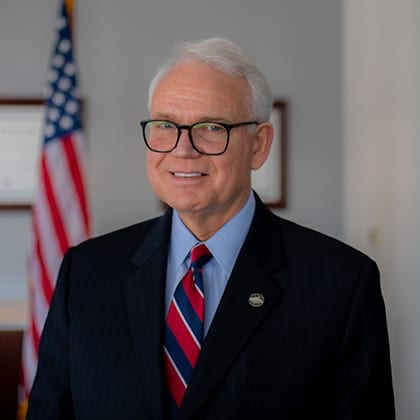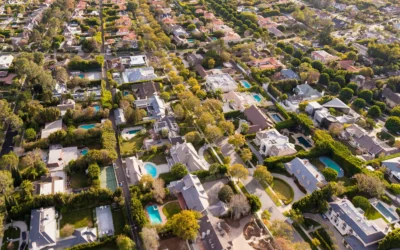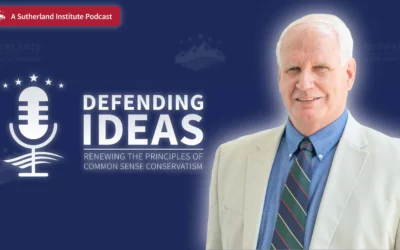Originally published by the Deseret News.
This week, Microsoft identified fake websites linked to a Russian intelligence agency. They were imitating conservative websites — even a couple of think tanks — which caught my attention. The story embodies a modern-day conundrum worthy of Greek mythology. It demonstrates the dissonance between the creative and destructive power of technology.
It also raises a question I was able to ask a member of the House Intelligence Committee, Congressman Chris Stewart, about freedom itself: Do the massive giants of U.S. free enterprise represent a risk to our freedoms, or a protection?
The question is relevant because the answer will shape our response as a nation to global threats — whether that be a response driven by fear or by fierce independence.
In his book “The Perfect Weapon,” David Sanger described the emergence of the internet as something that was, “for a decade … regarded as a great force for democracy: As people of different cultures communicated, the best ideas would rise to the top and autocrats would be undercut.”
Sanger then dispelled that now-quaint view, writing that the enemies of freedom have refined the ability to use technology to “incite disagreements, fray social bonds, and drive people apart.” Former NSA Director Gen. Michael Hayden has gone so far as to compare the destructive power of technology to the development of nuclear weapons.
For some, this only rekindles a Hobbes-Rousseau debate over the goodness of man and our ability to use virtually every advancement for both good and evil. But for others, it raises questions about the viability of free markets. When innovation creates global risks on the scale of cyberwarfare, some question the very concept of free enterprise.
Between election meddling and cyberattacks, it is natural for citizens to feel insecure. However, we must keep perspective. Throughout history, insecurity has led people to seek a protector — and often, the most willing “protector” has been more and bigger government. In 1941, Erich Fromm called this phenomenon “an escape from freedom.”
It may be fear that causes some to accommodate candidates who are running openly and unapologetically as socialists. It may be insecurity causing duly elected officials to declare that the Constitution of the United States — the one they are sworn to protect — no longer works.
In order to avoid a modern-day escape from freedom, we must avoid the longing for “safety” and make the better choice — the only choice that does not end in tyranny. That choice is a revival of the independent spirit that created this nation.
Solutions and safety reside not in state-run protection and charismatic leaders who know best what we need (more commonly known as socialism, communism or fascism) but in greater determination, more intelligent responses and the trust and awareness among the citizenry to avoid falling prey to these intrusions.
A conscious and informed response must include the resolve to maintain a system of free enterprise and avoid the falsehood that there is protection in socialism. There is not.
While free enterprise has always carried both risk and reward, nations with state-owned corporations ultimately rely more on the theft of free market ideas than on innovation and entrepreneurship.
As we watch Google face off with China’s government — which insists on censorship and the ability to gather data on its own people — we can see that yes, these are thorny modern-day issues.
But as Rep. Stewart pointed out in the aforementioned interview, “Our defense systems work daily to catch up without surrendering our freedoms.”
Regimes pursuing the destruction of Western democracy know the best way to do it is to exploit the weakness that comes from fear. They seek to sow confusion and distrust in our markets, institutions, elections, free press and in each other. They rely on the notion that if they can sufficiently undermine our confidence in ourselves, they can cultivate a dependent worldview more hospitable to dictators and despots. And make no mistake — they are making progress.
Cyberattacks like election interference and infrastructure hacks are really nothing more than old tactics dressed in new technologies. The goal is still to exploit a nation’s deepest gulfs and chasms: those divisions just below the surface — like racism, extreme nationalism, intolerance and bigotry — that reignite easily and serve to destabilize our nation.
These forms of aggression are relatively inexpensive and require no traditional military buildup. Instead, they erode the social bonds of confidence and civility. Rather than leave behind the tangled debris of bombed-out buildings and infrastructure, they leave lingering doubt and discord.
If we could see the destruction more clearly, we would understand the damage being done to our most critical infrastructure — those foundational values of freedom, trust and unity. We would see a community landscape of increasing smoke and ruin. We must understand that our way of life is, indeed, under attack. But we must also understand that to abandon the principles of freedom and enterprise would make us victims complicit in our own destruction.
We must remain confident in our nation and take heart from another statement by Rep. Stewart, who told me, “Free markets have lifted more people out of poverty worldwide than any other philosophy or economic model in the history of the world. We can protect our freedoms while overcoming weaknesses and not succumb to an either-or mentality.”
More Insights
Read More
Protecting property rights against government overreach
While governments can continue to regulate land use, these regulations and fees must be justified by a government interest and proportional to the effect of the development’s impact on that interest.
Do we need to care about the Utah State Board of Education?
For any Utah voters who also feel like K-12 public education is headed in the wrong direction, learning about the candidates running for a seat on the Utah State Board of Education (USBE) is a wise choice this election season.
Defending education choice the right way
Education choice has exploded in popularity across the nation in recent years. So why does it remain a contentious point of debate in some parts of the country?



